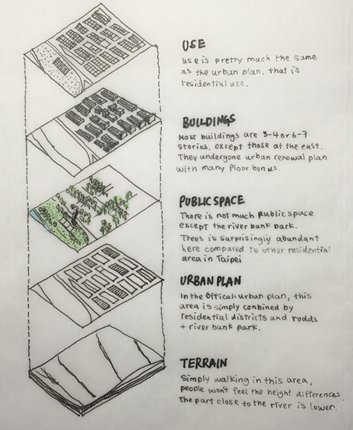As most of you may know, right now I’m enrolled in Vlerick’s Full Time MBA program. So far? So good! I’ll be honest with you; I wouldn’t say it’s been a hard program but definitely it’s been a enlightened one because it has been full of a combination of “A-ha” moments and also “Oh wow” moments. Last week was a Oh-wow-week, because we had the course Business Value with (Big) Data and Artificial Intelligence, in which our professor Philippe Baecke just showed us in a nutshell what this trend is all about and how is going to affect different (if not all) business models.
And this overwhelming reality check just left you thinking: “How’s this is going to really affect <insert your previous background>?”. In my case I just kept wondering how all this data-driven technologies and trends can affect topics such as real estate development and urbanism (any other Civil Engineer or Architect in the audience?)
And don’t get me wrong, of course I’ve heard of this topics before, it’s not like I’ve been living in a jungle all my life (even though a lot of people think Costa Rica is a jungle, but we are not getting into that discussion), but the depth and extensiveness that we explored all of this in short time was just shocking. The technologies change so fast that you may think you are in the hype, when actually you are living in the last decade (literally!).

So I thought: Are Urbanism, Transportation, and Real Estate Development going to be able to keep up the pace for the imminent digital data revolution? According to the United Nations 68% of the world population projected to live in urban areas by 2050. That means another 2.5 billion people in urban areas, and most of this increase will happen in development countries (90% in Africa and Asia)… Is the world ready to face the consequences of this kind of shift? To manage to transport all people and resources? To manage wastes? To control pollution? Migration? Water quality?
Cities have to evolve. And this evolution is happening through technology and data: Smart cities are those who have the ability to use technology to take advantage of data, which offers a solid and dynamic environment that can adapt to the changes that are likely to be out of our control in order to make more resilent cities. The question is how this technology will capture and exploit this data in order to determine how cities are going to change their dynamics. IoT? Automation? Smart materials? Robots? We are use to model cities in physical layers, but it’s time to realize that we might be missing the data layer.

And one important thing here, is that this data collection and uses has to be done at a local stage. No city is alike because of physical, social and economic factors. But it is important that each city and it’s authorities understand that solutions have to be as integral as possible, because having just “smart areas” don’t make a city smart.
And just as the cherry on top, and the end of last week, me and my Full-Time MBA classmate had the incredible opportunity to visit Google’s offices here in Brussels to get a lecture from them and ML6 about Big Data, Artificial Intelligence and the ethics behind it.

Of course it was amazing to grasp a little bit of what Google is all about: their business model, their offices, their culture. It’s impressive how the creativity can be this helpful in a tech driven company. Nobody should ever think they’re too technical or serious to think they can not use creativeness as a core value for their companies. And about ML6, it was just mindblowing to witness how all this automation, prescriptive and predictive analytics, deep learning and machine learning, are not just things for sci-fi movies, but are tools for the business nowadays.
And it was cool to see all the things that have done so far, and different things that are just developing right now. And this also left me wondering: If this is what they’re showing us, how many thing they are not? It’s definitely an exciting time to be alive. It was also cool to see from them different applications to problems like transportation with self-driving cars. But also solutions for health, banking, among many others. And let’s not forget the ethics behind it!

It is just inspiring to be a witness of this kind of things, and I think that’s one of the things I’m most grateful with Vlerick so far: to make us aware and see in the frontline what the world is all about, and how we have also to be fast enough to react and deliver, and responsible enough to use this data and technologies for the greater good and not for a self-interest drive.
I don’t know where my career path will take me, but sure I’m excited to see how all of this trends are going to affect my future duties.
– Charlie!
AK7
Conoce perro